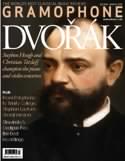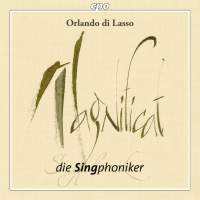Texte paru dans: / Appeared in: |
|
|
Outil de traduction (Très approximatif) |
|
|
Reviewer:
Edward Breen
Following their well-received 2013 release, ‘Hymnus’, Die Singphoniker return to Lassus with a new programme. Lassus wrote over 100 Magnificat settings largely on the alternatim principle: odd verses of plainsong and even verses of polyphony. Here, we have six where the polyphonic verses reference (parody) existing madrigals and hymns by other composers rather than the plainsong tone of the odd verses. Each Magnificat setting is preceded by its model, allowing listeners to hear such borrowing in operation and highlighting how the exemplars are changed and often quite substantially rewritten in the process. Contemporary listeners would certainly have recognised such secular music reworked into sacred and the musicologist David Crook has explained that this process exemplifies a desire to elevate secular music through repurposing it for a liturgical function.
As one might expect, Die Singphoniker perform the secular madrigals with a joyful energy that broadens in the related Magnificat while retaining essential glimmers of mischief. This is particularly noticeable in Il est jour, a knowing text about the pitfalls of being married to a ‘jealous greybeard’ where Claudine de Sermisy’s sprightly setting informs both the music and the performance.
As is so often the case with male
vocal ensembles performing early repertoire, overall sound is influenced
strongly by the countertenor. Back in 2013, ‘Hymnus’ was recorded with Markus
Geitner, whose diaphanous, nimble falsetto and bright harmonics balanced the
rich lower voices with ease. For this new release, Die Singphoniker’s
countertenor is Johannes Euler, an impressive singer with a meatier tone. Euler
promotes a richer sound without disrupting the overall personality of the
ensemble. At times his German-Latin vowels lead to some unexpected hues,
particularly in slower passages. As ever, this ensemble are best in the
cheekiest madrigalesque passages and overall the album is delightful. |
|
|
|
|
|
Cliquez l'un ou l'autre
bouton pour découvrir bien d'autres critiques de CD |
|




